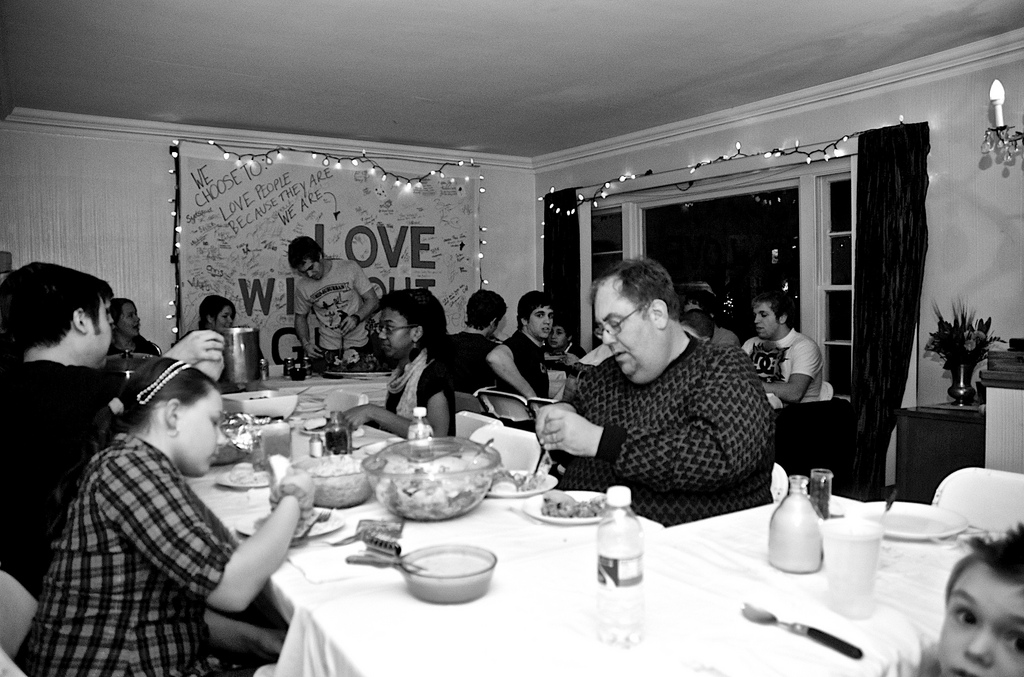
Cooperative housing (also known as co-op housing) is a supportive community of diverse individuals working together to establish an all-inclusive home environment. Arriving on the scene in the late nineteenth-century, cooperative housing has become a creative alternative to renting. Co-op owners and renters enjoy the benefits of family-style living with people of diverse ethnicities, ages, and experiences. Within these communities individuals practice a lifestyle of acceptance, social mobility, and teamwork based on a collegial mentality. The co-op is intended to provide a residence of mixed generations and races who forge friendships and uncover similar interests that create stronger communities.
Co-op housing can add many positive qualities to a person’s life inside the home, and can also create a secure feeling in knowing such a home will maintain a non-discriminatory environment. While housing has certainly come a long way in providing equality for all who are in search of a place to live, it is not yet perfect. Co-op housing provides comfort in knowing that diversity is sought after within the co-op community. A multi-racial environment can foster the ability to break down barriers and misjudgments in a home that is accepting of change. Within co-op homes, races converge, adding unique perspectives and unifying cultures. In this situation, multiple races living and working together then become advocates for one another in the home and in a much broader sense.
Affordability is another great perk – owning a co-op is relatively cheaper than owning a rental unit building and, as a result, the co-op members benefit with less expensive rent. Property owners and renters live and maintain the building, fostering an enriching democracy. Each member helps to cook, clean, and collectively decide essential decisions of the home through group meetings. The affordability of housing like this may provide a solution for lower income individuals to be a part of neighborhoods normally restricted to them due to pricing. This may also reduce the amount of pressure for renters to maintain a property as well as minimize the stress that can come with living in an apartment on their own.
While affordability allows for all people to enjoy an interactive community life, the co-op is also an amazing place to be amongst diversity. The National Association of Housing Cooperatives (NAHC) boasts, “Many co-op members indicate that the possibility for interaction with people from different backgrounds, cultures, and income levels is a positive factor in their decision to become a member.” Members of a co-op can create a small ideal interracial community, one that may be mimicked outside of the home as housing like this increases in less integrated areas. This type of home is a model for how communities can work together with individuals of all walks of life, to set the foundation for more diverse and accepting communities. It is clear then, that cooperative housing is a benefit to the community, facilitating integration, group organization, and a unique potential solution to segregation.
Cooperative housing is a positive addition to any city because it allows for a mixture of races and ethnicities to enjoy the positive effects of collaboration. NAHC describes cooperative housing as being “based on the values of self-help, self-responsibility, democracy, equality, equity and solidarity.” Integrated communities can flourish on values like these and bring together responsible members of different cultures to explore a lifestyle concurrent with the integrative goal of cooperative housing. Within a co-op, a wonderful variety of races are able to come together and participate in each other’s economic and social wellbeing. A co-op creates an inviting environment, one that may serve as an example to promote a possibility for change in the demographics of less integrated neighborhoods. Living in a community of unique individuals can foster an open mind and an open heart. Co-op housing can play a role in filling the gap of racial separation that is prominent in many cities like Chicago. A housing idea such as this is a small change within each community with the possibility of a grand impact.
For more information on cooperative housing:
National Association of Housing Cooperatives
By Angela Curry, Fair Housing Research Assistant
Photo by Bradley Siefert
